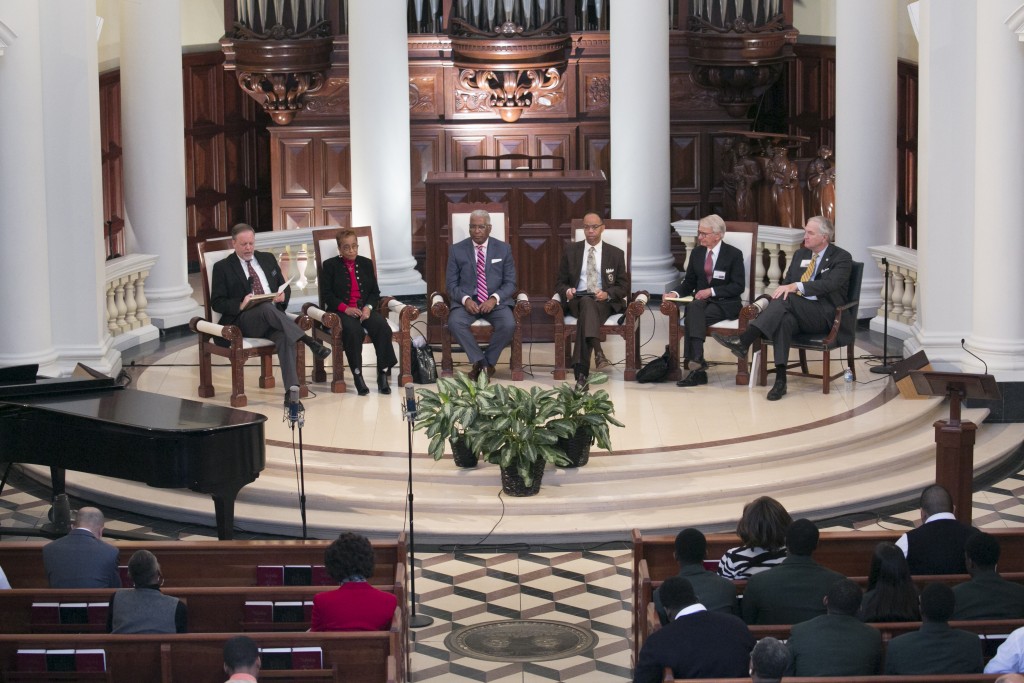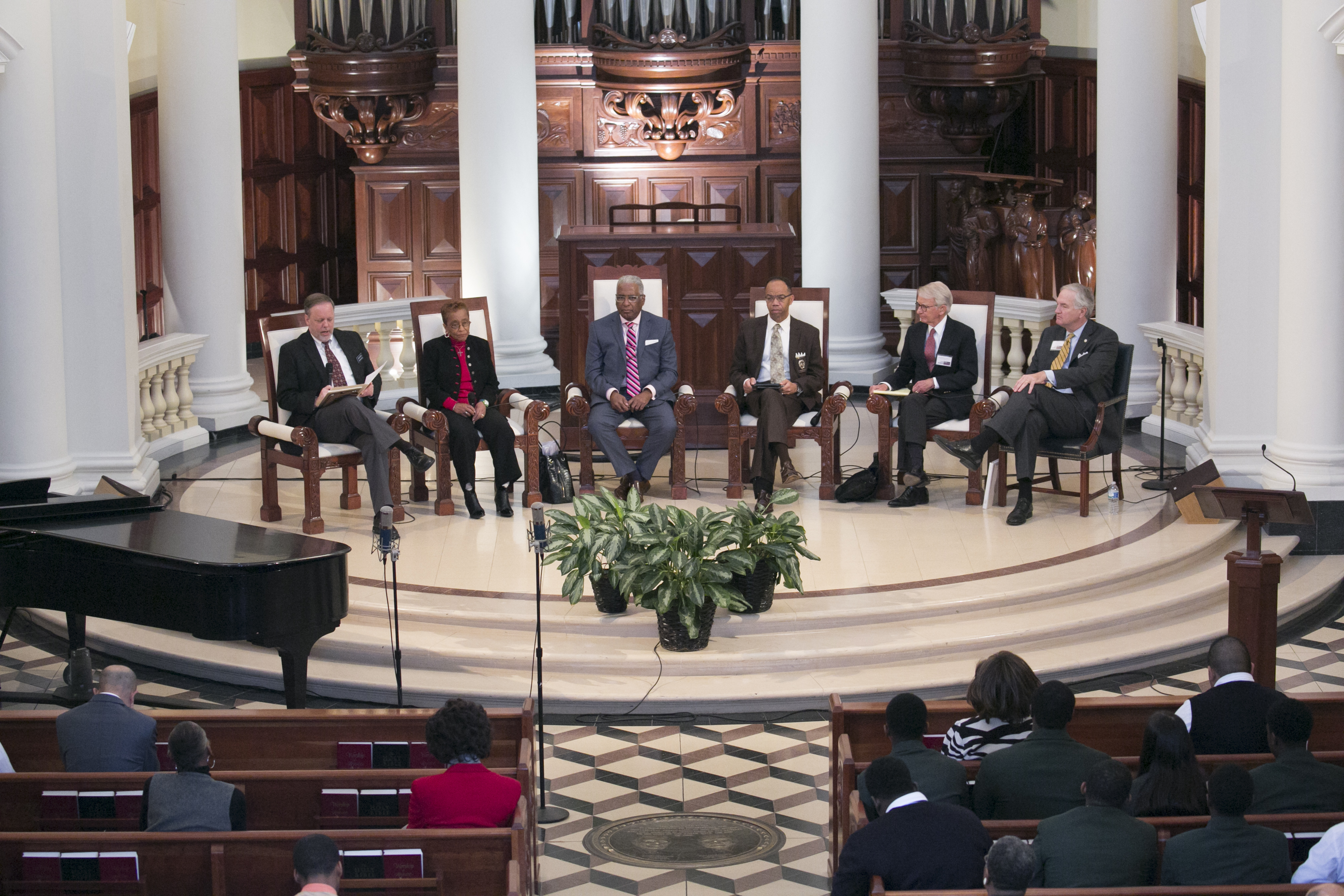By Ariel Worthy
Times staff writer

Electing a black president in 2008 had some believe that the United States had entered into a post racial society, but that belief has been questioned after the deaths of blacks at the hands of police officers which has led to heated debates over race.
Last week, national and local leaders gathered in Birmingham to create a pathway to dialogue, according to organizers.
Birmingham Mayor William Bell; Attorney General Luther Strange; retired Circuit Court Judge Helen Shores Lee and Charleston, SC Mayor Joseph P. Riley Jr. were at Samford University’s Beeson Divinity School for a racial reconciliation conference titled “Black and White in America: How Deep the Divide?”
Lee and Strange disagreed whether race played role for African Americans in the criminal justice system.
“Institutional racism is rampant,” said Lee, daughter of Arthur Shores, the famed civil rights attorney. “A white man can come in with a dislocated shoulder and a strain on his back, and he’ll get $150,000. I had [a black man] that had a torn rotator cuff and something wrong with his back and he was offered $1,900, to which I said, ‘they can do a little better than that.’”
Lee gave another example: “I had a black and white lawyer arguing and the white lawyer said to the black lawyer ‘boy where did you get your education from?’ It’s still out there, very much,’” Lee said.
Strange says that race is not a factor the criminal justice system considers. Some of the factors that the criminal justice system considers are:
- Lack of a stable home environment: He spoke on his extracurricular activities as a child and said although his parents worked hard, it was also his coaches and mentors that helped raise him. “It’s not really a matter of money but so many of our children are not blessed with [extracurricular activities].”
- Lack of a good education: “If you don’t have a good education, you can’t get a job and you’re going to be behind the curve throughout the whole process.”
- Lack of moral compass: “It’s hard for us to relate to (criminals); when you see someone taking someone else’s life you see there’s almost no remorse at all.”
Post-racial
Conservative radio host Lou Dobbs even said in 2009 that “we are now in a 21st-century post-partisan, post-racial society.”
That has not proven to be the case.
Even in finances a great racial divide persists.
The wealth gap between blacks and whites has reached a new high. The wealth of whites is nearly 13 times the median wealth of black households in 2013, according to a Pew Research Center analysis. The growing trend suggests that the economic recovery since the Great Recession has not benefitted all households the same. In fact, there was a stark divide in the experiences of white and black households during the economic recovery.
And, according to the National Association for the Advancement of Colored People (NAACP), blacks serve nearly as much time in prison for a drug offense as whites do for a violent offense.
According to data from the U.S. Bureau of Justice, 56 percent of federal inmates, 67 percent of inmates in state prisons, and 69 percent of inmates in local jails did not complete high school.
Generational Differences
Post-racial America may not have arrived but many at the conference change could start with the younger generation.
“It’s important to involve the young people,” Strange said. “Make them elected officials and lawmakers.”
Still, the issues younger people face cannot compare to what many older African Americans faced 50 years ago, Bell said.
“The younger generation has no clue what it means to walk up to a water fountain sign that says ‘Whites Only’… they have no concept of what it’s like to be in that type of society,” Mayor Bell said.
While some young people may not know about separate water fountains, many black millennials – like members of the Black Lives Matter Movement – are fighting for equality when it comes to criminal justice.
‘Call it out’
Lee said people should not be afraid to call out racism where it exists.
“A lot of people think we have moved on; we haven’t moved that far because racism still exists in our state,” she said.
So what happens when people go within the legal realm and justice still does not prevail?
“Call them out again,” Lee said. “Don’t let it die and just keep the issue on the burner. It’s easy for everyone to sweep it under the rug, but [Birmingham] is still a hellhole for racism.”




